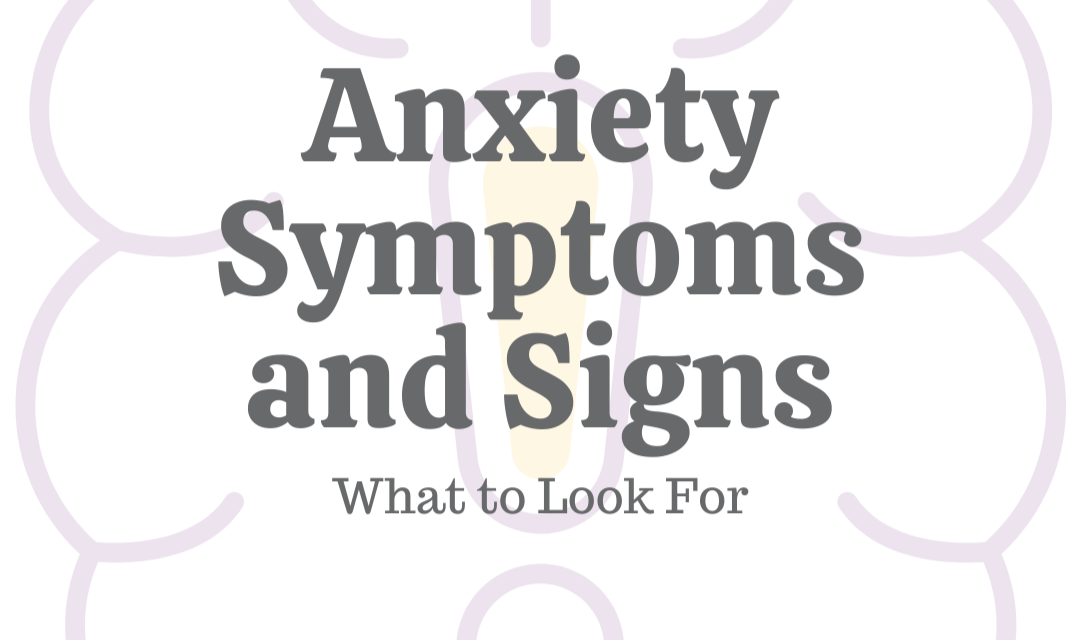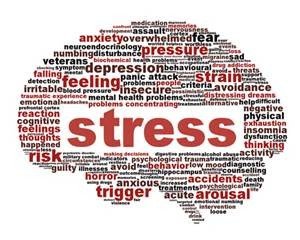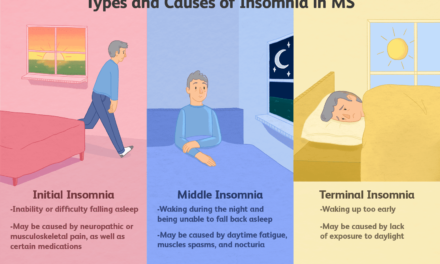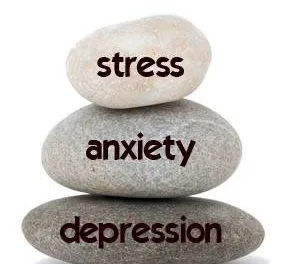Introduction to symptoms of anxiety:
symptoms of anxiety is a common mental health condition that affects millions of people worldwide. It can manifest in various ways, impacting both mental and physical health. Understanding the symptoms of anxiety is crucial for identifying and managing this condition effectively.
Psychological Symptoms
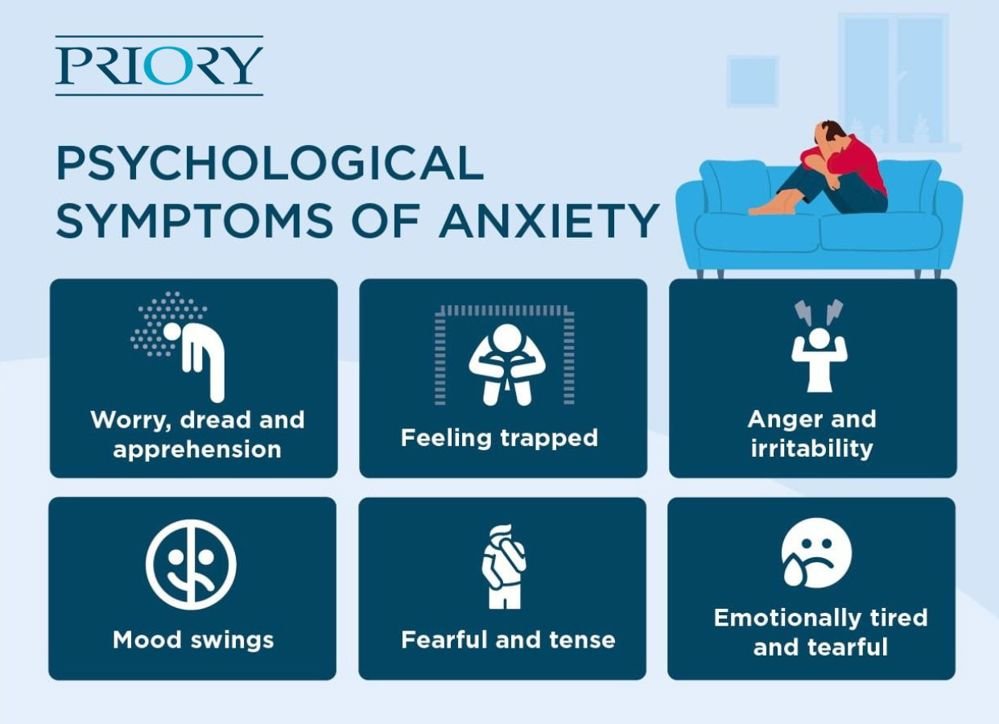
1. Excessive Worrying:
One of the hallmark symptoms of anxiety is persistent and excessive worry about various aspects of life, such as health, work, social interactions, or financial matters. This worry is often disproportionate to the actual situation and can be difficult to control.
2. Restlessness:
Individuals with anxiety often feel restless or on edge. This can manifest as an inability to relax or sit still, leading to a constant state of tension.
3. Irritability:
Anxiety can cause heightened sensitivity to stress, making individuals more easily irritated or angered by minor frustrations.
4. Difficulty Concentrating:
Anxiety can interfere with cognitive functions, making it hard to concentrate or focus on tasks. This can affect productivity and performance in daily activities.
5. Fear of Losing Control:
Many people with anxiety experience a fear of losing control over their thoughts or actions. This can lead to a sense of impending doom or catastrophe.
Physical Symptoms
1. Increased Heart Rate:
Anxiety often triggers the body’s fight-or-flight response, leading to an increased heart rate. This can be accompanied by palpitations or a feeling of a racing heart.
2. Shortness of Breath:
Difficulty breathing or a sensation of tightness in the chest is a common physical symptom of anxiety. This can sometimes lead to hyperventilation.
3. Sweating:
Excessive sweating, particularly in situations that trigger anxiety, is another common physical symptom.
4. Trembling or Shaking:
Anxiety can cause noticeable trembling or shaking, especially in the hands.
5. Gastrointestinal Issues:
Many people with anxiety experience gastrointestinal symptoms, such as stomach cramps, nausea, diarrhoea, or irritable bowel syndrome (IBS).
6. Fatigue:
Chronic anxiety can be physically draining, leading to persistent fatigue or a feeling of being easily tired.
7. Muscle Tension:
Anxiety often causes muscle tension, leading to aches, pains, or headaches.
Behavioural Symptoms
1. Avoidance Behaviour:
To manage their anxiety, individuals may start avoiding situations or activities that trigger their symptoms. This can lead to significant lifestyle changes and limitations.
2. Compulsive Behaviours:
Some people with anxiety develop compulsive behaviours or rituals as a way to cope with their anxiety. These behaviours can become a significant part of their daily routine.
3. Sleep Disturbances:
Anxiety can interfere with sleep patterns, causing insomnia, frequent waking during the night, or poor-quality sleep.
Recognizing the Need for Help:
It’s important to recognize when anxiety symptoms become overwhelming or interfere with daily life. Seeking help from a mental health professional can provide valuable support and treatment options. Treatments for anxiety often include therapy, medication, lifestyle changes, and coping strategies that can significantly improve quality of life.
Effective Treatments for Anxiety:
Anxiety is a treatable condition, and numerous approaches can help alleviate symptoms and improve quality of life. Treatment plans are often personalised, depending on the severity of the anxiety and individual preferences. Here are some of the most common and effective treatments for anxiety:
Psychotherapy
1. Cognitive Behavioral Therapy (CBT):
CBT is one of the most effective forms of psychotherapy for anxiety. It helps individuals identify and change negative thought patterns and behaviours that contribute to their anxiety. CBT often involves exposure therapy, where patients gradually face their fears in a controlled manner.
2. Acceptance and Commitment Therapy (ACT):
ACT encourages individuals to accept their thoughts and feelings rather than fighting or feeling guilty for them. It emphasises mindfulness and teaches patients to live in the present moment while committing to actions that align with their values.
3. Dialectical Behavior Therapy (DBT):
Originally developed for borderline personality disorder, DBT has been adapted for anxiety. It combines cognitive-behavioural techniques with mindfulness practices to help manage intense emotions and improve relationships.
4. Exposure Therapy:
This specific form of CBT focuses on gradual exposure to feared objects or situations to reduce the fear response over time.
Medications:
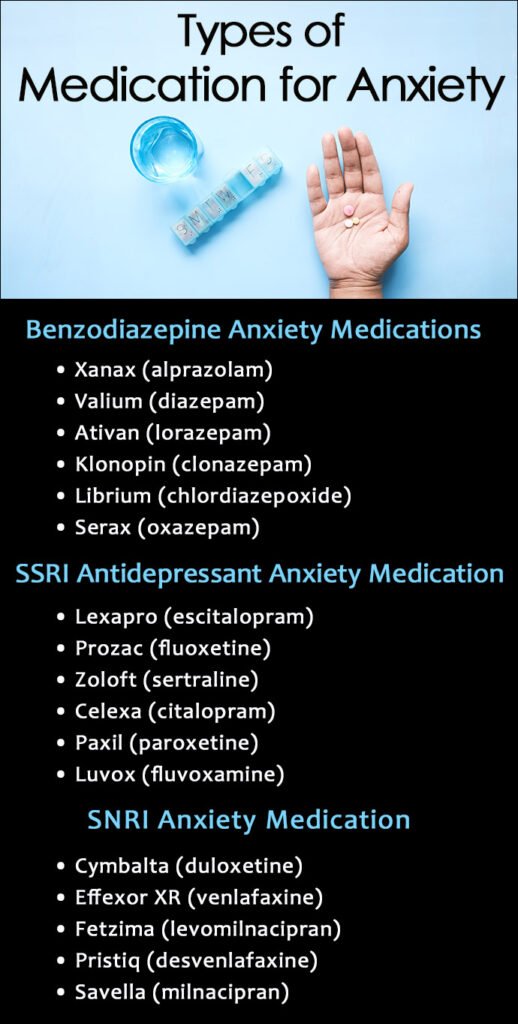
1. Selective Serotonin Reuptake Inhibitors (SSRIs):
SSRIs, such as fluoxetine (Prozac) and sertraline (Zoloft), are commonly prescribed for anxiety. They increase serotonin levels in the brain, which can help improve mood and reduce anxiety.
2. Serotonin-Norepinephrine Reuptake Inhibitors (SNRIs):
SNRIs, like venlafaxine (Effexor) and duloxetine (Cymbalta), also increase serotonin and norepinephrine levels and are effective in treating anxiety.
3. Benzodiazepines:
Medications like diazepam (Valium) and alprazolam (Xanax) can provide quick relief for acute anxiety symptoms. However, they are typically prescribed for short-term use due to the risk of dependence.
4. Beta-Blockers:
These medications, such as propranolol, are sometimes used to manage physical symptoms of anxiety, like rapid heart rate and tremors, particularly in situations like public speaking.
5. Buspirone:
This anti-anxiety medication is less sedating than benzodiazepines and carries a lower risk of dependence. It may take a few weeks to become effective.
Lifestyle Changes and Self-Help Strategies
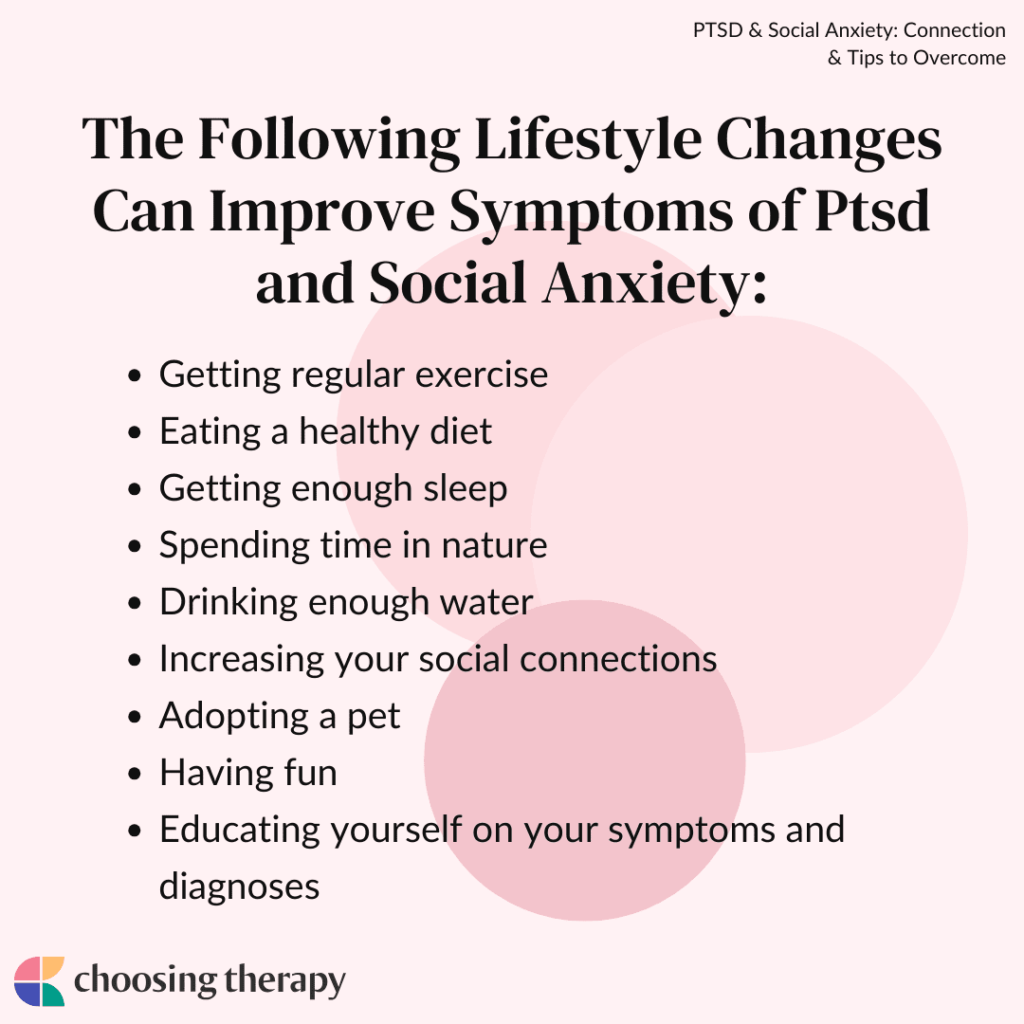
1. Regular Exercise:
Physical activity can reduce anxiety by releasing endorphins and promoting a sense of well-being. Activities like walking, jogging, yoga, and swimming are particularly beneficial.
2. Healthy Diet:
Eating a balanced diet rich in fruits, vegetables, lean proteins, and whole grains can support overall mental health. Reducing caffeine and sugar intake can also help manage anxiety symptoms.
3. Sleep Hygiene:
Establishing a regular sleep routine and ensuring adequate rest is crucial for managing anxiety. Techniques such as maintaining a consistent sleep schedule, creating a relaxing bedtime routine, and minimising screen time before bed can be helpful.
4. Mindfulness and Meditation:
Practices like mindfulness meditation, deep breathing exercises, and progressive muscle relaxation can reduce stress and promote relaxation.
5. Social Support:
Building a strong support network of family, friends, or support groups can provide emotional support and reduce feelings of isolation.
Conclusion:
Treating anxiety involves a combination of approaches, including psychotherapy, medication, lifestyle changes, and complementary therapies. With the right support and treatment plan, individuals with anxiety can lead fulfilling and balanced lives. If you or someone you know is struggling with anxiety, don’t hesitate to seek professional help to explore the most effective treatment options.
you must watch 👁️👁️ this article 👇👇👇
Depression Anxiety Stress Scale 42:Measuring the Emotional Spectrum

